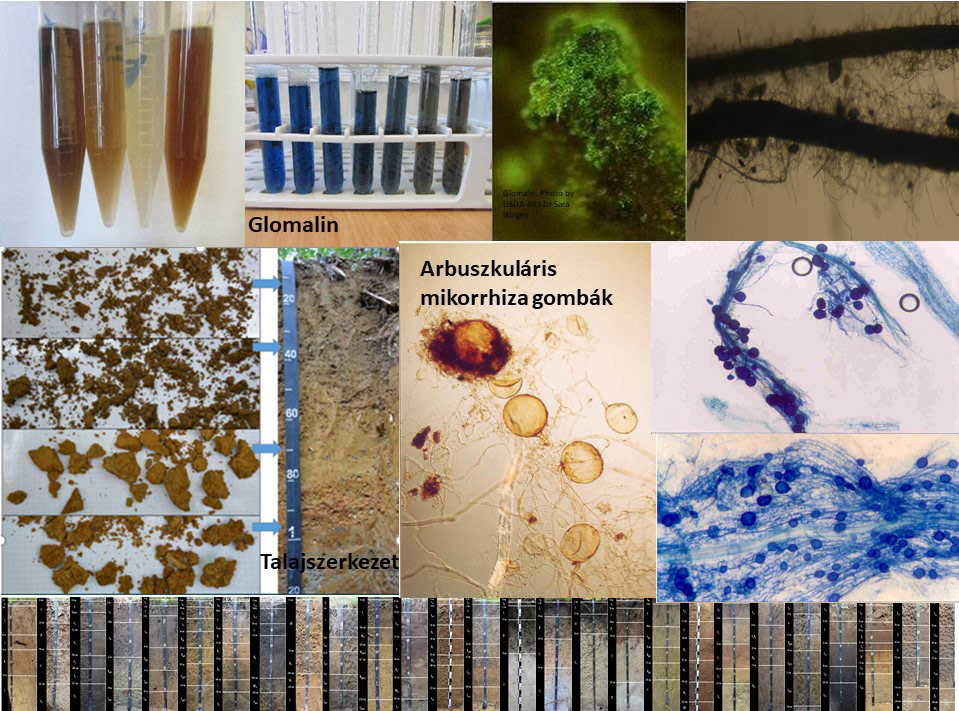Project leader:
Imréné Takács, Tünde
Participating researchers:
Füzy, Anna; Makó, András; Rékási, Márk; Barna, Gyöngyi; Molnár, Sándor; Pabar, SándorCarbon stored in soils has a fundamental importance in soil fertility. Soil organic carbon (SOC) reserves influence the cycle of nutrients, soil structure, water storage, filtration, and buffering capacities, as well as the genetic and functional diversity of soil organisms. Assessing carbon storage capacity and the quality of carbon reserves in soils requires a comprehensive examination, including simultaneous analysis of soil physical and chemical properties, biological activity, diversity, and their interactions.
Our preliminary research experiences in national (GINOP; NVKP; OTKA, ELKH) and international projects (H2020; Norway Grant; NKM 2019-17) indicate that a significant part of soils under agricultural management is exposed to structural degradation and organic matter loss, leading to soil degradation that adversely affects the drought and waterlogging sensitivity of arable soils. Global environmental issues and soil degradation caused by improper land use have been increasing demand for rapid, cost-effective soil health diagnostic methods and data collection.
The main objective of this project is to analyze the combined effects of land use, soil cultivation, and nutrient management on organic matter characteristics, structural conditions, and water management. This analysis is based on ongoing field and laboratory experiments, as well as investigation of archived samples and their test results.
The formation and structural stability of soil aggregates composed of soil solids is a function of the physical, chemical, and biological properties of soils. The glycoprotein glomalin, produced by arbuscular mycorrhizal fungi (AMF) plays a key role in the formation of stable soil aggregates. AM fungi, which produce glomalin, are the oldest and the most widespread root symbionts. They are economically important, with 80-90% of terrestrial plants, including the majority of our food crops, establishing beneficial symbiotic relationships. The presence of AM fungi in the roots has a positive effect on the nutrient supply and the stress tolerance of host plants. Glomalin is a significant portion of soil organic carbon and nitrogen reserves. Its bioindicative significance lies in its stability contrary to other microbial soil characteristics changing dynamically in space and time. It also shows a close relationship with soil physicochemical parameters and characterizes the state of the soil-AM fungi-plant system.
A soil structural and organic carbon database will be developed from the results of measurements on natural and differently treated soil samples. This database allows the investigation of relations between structure, organic matter characteristics, and water management properties. The synthesis of research results, the finding of hidden relations opens a way to soil health indication. Based on the database, indicators of glomalin, micro- and macroaggregate stability, and pore size distribution will be developed that enable a relatively rapid, standardized assessment of water management and carbon cycling aspects of different types of soils.
Complex indication, built on soil physical, chemical, and biological analyses can help to assess the impact of current land use practices on soil quality and to design sustainable land use change technologies.

